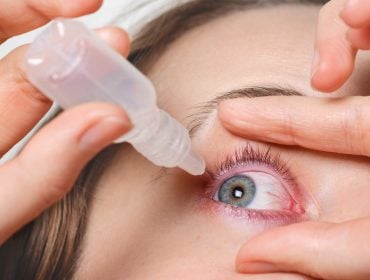Herpes Cure
Is Herpes Curable?
Unfortunately, there is no herpes cure. While there is no cure for it, there is some actions one can take if they do have it.
With so many people carrying the herpes simplex virus (HSV), why is there nothing to combat it? Researchers have been looking for a cure and a vaccine for decades. Even with the focus being mostly on a vaccine, they haven’t been able to find anything. Scientists have also treaded into something called gene editing, but have unfortunately run into some roadblocks along the way. If you’re not too sure what herpes even is, stick around cause you’re about to learn.
Herpes is a sexually transmitted disease that is extremely contagious and stays with you for life. Genital herpes is usually caused by HSV-2, while oral herpes is normally caused by HSV-1. However, someone carrying oral herpes can give HSV-1 to another’s genital area through oral sex and vice versa. This gives herpes not just one but two outlets from where to spread.
It’s said that about one in six people in the United States aged 14-49 have acquired genital herpes through HSV-2. The CDC states that the overall genital herpes statistic is likely to be higher, thanks to the possibility of getting HSV-1 in the genital region. Taking that into account, genital herpes statistics are often quoted at around 25 percent for women and 10 percent for men in the U.S. The craziest thing: most people don’t know they have it!
Is There A Cure For Herpes
It’s important to note the difference between a vaccine and a cure. A cure, obviously, would heal a person already carrying the virus. Whereas a vaccine is like installing a harmless set of instructions for the body so it knows how to eliminate the virus in case it comes into contact with the body later. A cure eliminates and a vaccine prevents. Cool, got it, but other than being an STD, what makes herpes so special?
What exactly is herpes?
The thing is, herpes is unlike other viruses that have once been fatally common. The virus is different from, for example, the measles virus because measles will make you sick quite quickly as the immune system reacts to its arrival and then is more prepared for the virus should it appear in the future.
Herpes, on the other hand, doesn’t always show symptoms immediately. The virus sometimes never even alerts the body of its presence, other times the symptoms come and go, and still other times, it’s severe, rapidly creating symptoms after it’s been acquired.
Secure and Confidential
STD testing services
The fastest results possbile - available in 1 to 2 days
The span of time that herpes can be asymptomatic (showing no symptoms) can vary from weeks, months, years, or even decades! This lovely characteristic is called virus latency. Oh yeah, and its ability to incorporate its own genetic material into the genetic material of the infected person (yeah, it becomes a part of you) is also part of the latency characteristic. Nice.
Once HSV infects skin cells, it then moves to nerve cells in the DNA and attaches itself with a relentless grip.
The herpes virus’ DNA is more complicated than most other infections and is frustratingly ninja-like while it sneaks past our immune system. Kind of like cancer. The sneaky ones do as much damage as possible without alerting the host and are currently impossible to shake. This sneaky creeping and holding back of symptoms makes herps a latent disease. Intense right?
What are vaccines and what can and can’t they do?
So, we’ll explain the way vaccines work without getting too science-y: They’re kind of like a tiny, perfectly engineered practice run for the immune system. Vaccines carefully and minimally introduce the disease into the body, yet do not expose the body to the disease’s symptoms. Think of this as practice for the tiny soldiers living in your immune system. These little soldiers are immune cells whose lives main purpose is to protect you and eliminate illnesses to keep you healthy. A vaccine helps to show them how to defeat the disease so they’re then able to face the real one with force and successfully protect their human, aka you.

Great! Sounds easy enough. Let’s do it! Let’s train up everyone’s defenses and eliminate herpes from all future generations!
Yeah, not so fast. Sadly, the problem with developing a herpes vaccine is that researchers can’t target the vaccine to the immune system. Remember how herpes is ninja-like and moves around the immune system? Well, it occasionally will also hide within your nerve cells, making herpes stealthy and almost invisible. How are your mini soldiers going to defeat the virus if it’s impossible to see them and not even within arms reach?
So, yeah, the vaccine option is looking bleak.
What about gene editing?
Scientists have also been looking into something called, “gene editing.” Gene editing, or genome editing, is a way of making specific changes to the DNA of a cell or organism. Unfortunately, there are many drawbacks to using this method. Some edits work for a bit but don’t last long. Other techniques supply a gene as spare parts and it also works for a little while also but isn’t permanent. It’s currently impossible to control exactly where in the DNA the gene is inserted. The negatives do outweigh the positives, especially due to the fact it can result in cancer.
Keith Jerome, a virologist at Fred Hutchinson Cancer Research Center, has done a study to show that gene-editing can reach the latent virus in a nerve cell, with the goal to damage some of the virus’ DNA. It’s hard to get the correct gene changed, but Jerome (and us) believe that as technologies advance, a perfected version of gene editing will allow us to rid the earth of latent virus’ like herpes and cancer. We. Can’t. Wait.
Since we’ve basically told you that there is no cure nor vaccine out there, we should talk briefly about those who say otherwise. This is fake news. This may be the first time you’re hearing this but probably not. You’ve likely seen false claims (usually somewhere in comment threads) saying that Dr. So-and-so cured their HIV and herpes and whatever other incurable disease is out there. These are not reliable sources. They’re not even real people. Do not trust anything or anyone about a “cure” or a “fix” unless you see the CDC confirm this new cure or vaccine, got it?
How can you manage herpes right now?

As the world struggles to find a cure for this virus, we’re left searching for other resources. Right now, you can be prescribed medication or an over-the-counter antiviral medication to reduce the severity and duration of your outbreaks.
When you are prescribed antiviral medication, there are a few options of treatment available depending on the intensity of the symptoms.
The prescriptions used for herpes infections are all antiviral and they suppress the growth of the virus. But, let it be clear, antivirals do not cure herpes.
If diagnosed with herpes, your doctor will likely ask how often you get outbreaks and how bad the sores are. This helps you get prescribed a treatment according to your situation.
Here are three different options you may be offered:
- Initial treatment: If you have sores present when you’re diagnosed with herpes, you will usually be given a brief course of seven to ten days of antiviral therapy to make them go away or stop them from worsening.
- Intermittent treatment: You may be prescribed an antiviral drug that you can take as soon as you notice sores or when you feel them coming. The sores themselves will always disappear on their own, but taking antivirals can lessen the symptoms and help speed up the healing process. Again, this doesn’t mean herpes has been healed, just the sores.
- Suppressive treatment: Those with frequent breakouts may need to take an antiviral drug on a daily and ongoing basis. This process is called suppressive therapy. A benefit of using these medications is that when you aren’t experiencing sores or other symptoms, the therapies have been shown to reduce the risk of transmitting it to a partner. Remember, herpes is extremely contagious so suppressive therapy is a good way to keep the virus to yourself.
If you’re like us and you hate going to the doctor or just generally hate leaving the house, there are some things you can stock your medicine cabinet with when you’re feeling an onset or are already being personally victimized by herpes.
Non-doctor prescribed tips include the following:
- Apply a cold compress. This will soothe the burning sensation from the cold sores and they won’t hurt as much.
- Avoid scratching any of the sores or blisters. If you do, you risk spreading the infection to other parts of your skin and further irritates the sores.
- Keep the areas experiencing outbreaks clean. The sores and genital herpes infections can become infected with bacteria from your hands, uring, or feces.
- Medicated pain creams or lotions can ease the discomfort associated with the sores. There are a few over-the-counter options available. Before you use these, make sure to confirm with a doctor or pharmacist that the product you select is safe to use on herpes lesions. Also, please wash your hands before and after applying any product. This will reduce the risk of further contaminating the wound or spreading it to other places on your skin.
- Oral pain relievers containing acetaminophen, ibuprofen, or naproxen can help relieve herpes-related pain for hours.
Alas, is there hope for a herpes cure or vaccine in the future?
While herpes sucks, those infected can be comforted that they are very much not alone. The biggest bright side: Drum roll, please… it’s really not that big of a deal! Believe it or not, do you what you want, but the CDC says so too. Soooo many people have it and the emotional trauma from being diagnosed is usually the worst part. The physical symptoms usually aren’t that big of a deal. So live your best life, take your antivirals, and keep doing you. Make sure you let those around you know that herpes isn’t the end of the world. Chances are, you already know one or two regular ol’ people who just like you have herpes. Is there a cure for herpes …sorry.
Medically Reviewed by Joshua Hwang, MD on December 19, 2023
Secure and Confidential
STD testing services
The fastest results possbile - available in 1 to 2 days

Tagged
Categorized As
Author: Alexa Amador
Alexa graduated from a university in Atlanta with a B.A. in English and joined the STDcheck.com team in 2018. Before joining, she marketed and developed her own blog while working freelance for leading businesses. Having a robust skill set of research, writing, and editing has kept her busy and driven throughout both her academic and professional careers. Alexa became entangled in the sexual health business after coming from not only "abstinence-only" schooling but where the reproductive anatomy chapter was literally torn from her textbook. She realized how irresponsible it is for people to encourage ignorance about sexual health, especially to younger audiences, and so her passion for becoming part of the solution and educating the masses was born. When not writing for Exposed, Alexa enjoys taking vacations in the mountains with a good book and her dog, Nova.




